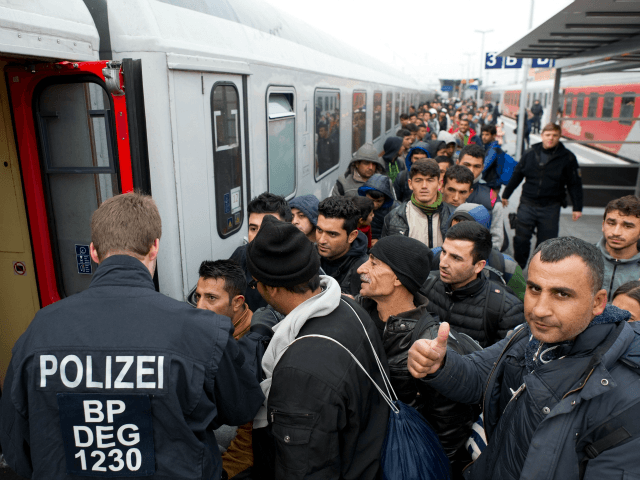The German federal parliament (Bundestag) yesterday approved a new law giving migrant arrivals to the country ID cards. They are part of a newly-centralised system designed to allow government agencies to access information with ease.
It is hoped the compulsory migrant ID cards will address security concerns expressed by the German public following the Paris terrorist attacks and the migrant sex attacks in Cologne on New Year’s Eve, reports the Financial Times.
Aiming for what Interior minister Thomas de Maizière calls “improvements, control and order” the ID cards are intended to improve monitoring of the huge migrant influx Germany is experiencing as part of the ongoing migrant crisis. In particular they are meant to prevent the mis-identification or double-counting of migrants, or indeed them being missed altogether.
The plans were first approved by Chancellor Merkel’s government late last year, but recent events gave the initiative added impetus.
In Cologne one of the problems police faced was identifying the alleged attackers. One migrant reportedly tore up his identification papers in front of a police officer saying: “You can’t do anything to me. I can get a new one tomorrow.”
Beginning February, with full roll out expected by the summer, migrants registered in Germany will receive one ID card containing all information needed for an asylum application, reports Deutsche Welle. Such information will include fingerprints, country of origin, contact details, health status and qualifications.
To date Germany has had a somewhat decentralised system which has been blamed for letting migrants fake their identity or even register multiple times. The consequences of failing to identify migrants have proved serious.
Investigations into the 20-year-old terrorist who was shot dead earlier this month when attacking a police station in Paris found he had lived in Germany as well as France, and used seven different identities.
It is estimated that up to 80 per cent of migrants arriving in Germany (of which there were 1.1 million in 2015) have faked papers or no papers at all, especially those who are not fleeing persecution or warzones. This means that when asylum applications are rejected it is still not possible to deport them, and with around half of all applications for asylum in Germany being rejected the numbers are substantial.

COMMENTS
Please let us know if you're having issues with commenting.